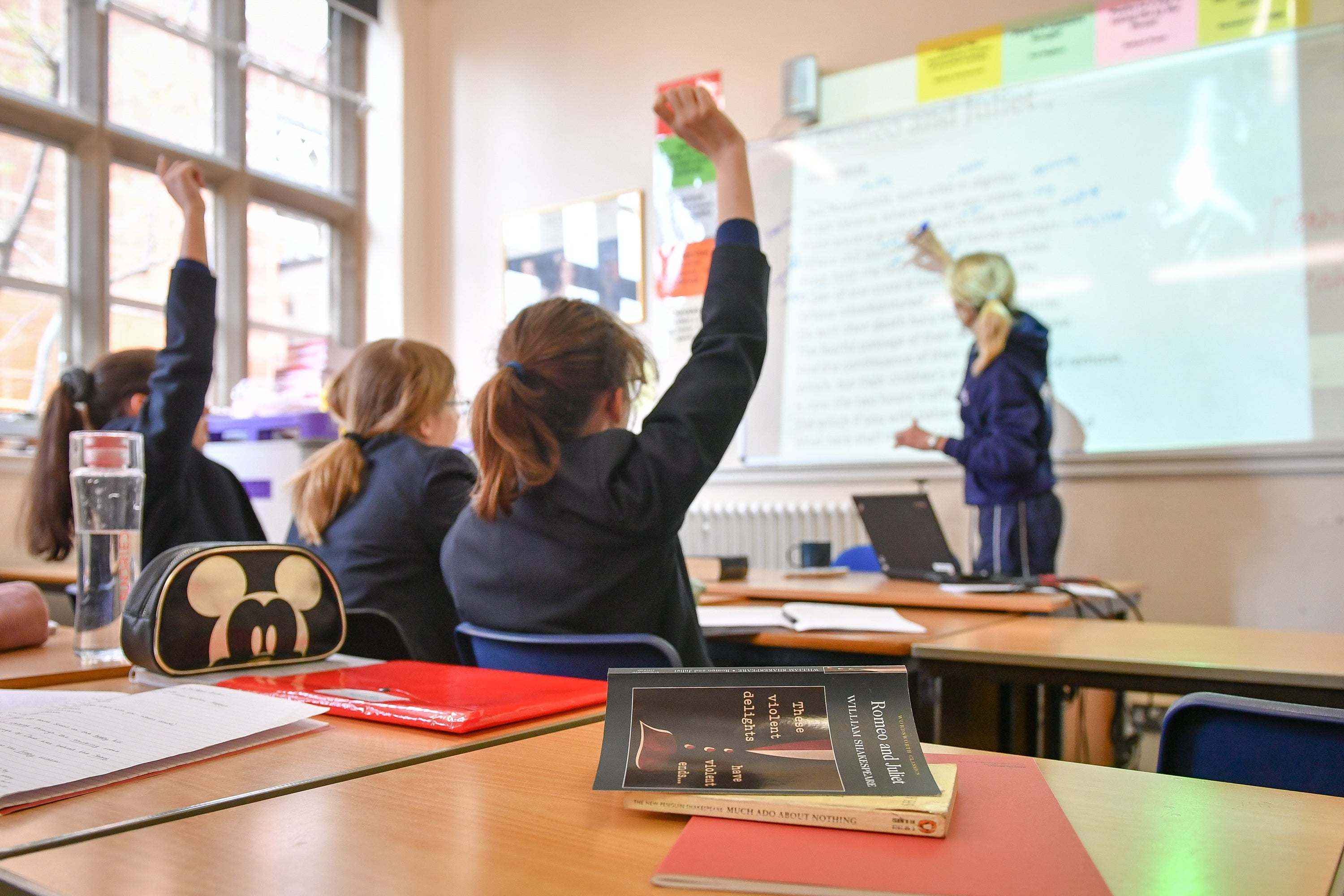‘Pupils feel attendance doesn’t matter following lockdown online learning’
An Ofsted report also found that some families expect remote learning to be provided during holidays taken in term time.

Your support helps us to tell the story
From reproductive rights to climate change to Big Tech, The Independent is on the ground when the story is developing. Whether it's investigating the financials of Elon Musk's pro-Trump PAC or producing our latest documentary, 'The A Word', which shines a light on the American women fighting for reproductive rights, we know how important it is to parse out the facts from the messaging.
At such a critical moment in US history, we need reporters on the ground. Your donation allows us to keep sending journalists to speak to both sides of the story.
The Independent is trusted by Americans across the entire political spectrum. And unlike many other quality news outlets, we choose not to lock Americans out of our reporting and analysis with paywalls. We believe quality journalism should be available to everyone, paid for by those who can afford it.
Your support makes all the difference.Pupils feel they do not need to be in school because of the remote learning provided during national lockdowns, which is driving poor attendance, the education watchdog has found.
In a report published on Monday, Ofsted said that, in secondary schools in particular, “it appears that the provision of remote education during national lockdowns has negatively affected some pupils’ perceptions of the need to be in school”.
One school leader said they sensed that pupils feel “you weren’t fussed when we weren’t in school all that time in lockdown and we did our work at home, so why does it matter so much now?”
Some parents also expect that online learning will be provided for their children if they go on holiday during term time, Ofsted found.
Some poor attendance is caused by families who feel they have not had a holiday in a long time, or take a previously cancelled holiday during term time, although some schools reported fewer term-time holidays than usual.
Schools also reported that Year 11 pupils were worried about their GCSE exams being cancelled and “how this might affect their future”.
In January, Government figures showed that one in 20 pupils was off school for coronavirus-related reasons, with Education Secretary Nadhim Zahawi announcing a crackdown on what he described as a “postcode lottery” on school absence across the country.
The Ofsted report – Securing Good Attendance And Tackling Persistent Absence – found that pupils’ worries were not always related to school but to their wider experiences during the pandemic, including relatives becoming ill or fears that this could happen, seeing parents under more stress than usual, experiencing domestic violence, or experiencing financial difficulties.
Sometimes particular events in the local area made pupils more anxious.
One school leader reported that primary school pupils were “very upset” by “anti-vax” protests outside their school, and that a “great deal of work had to go into alleviating their concerns”.
Parents also kept their children off school following media reports of a rise in Covid-19 cases in their local area.
The report said schools which had successfully raised pupil attendance were good at communicating the need to be in school to both pupils and parents, as well as assisting in practical ways, such as buying alarm clocks for families, or giving pupils responsibilities within school to motivate them to attend.
Ofsted chief inspector Amanda Spielman said there is “no doubt that schools continue to face some very tricky challenges around pupil attendance”.
She added “it is clear that leaders who have previously improved pupil attendance have managed to maintain good levels this term” through a principle of “listen, understand, empathise and support – but do not tolerate”.
Ms Spielman said headteachers who have successfully improved attendance at their schools understand the importance of making their school “a safe place where pupils really want to be”, and they “also seek to understand what is stopping individual pupils from attending regularly and they put the right support in place to help solve the problem”.
Geoff Barton general secretary of the Association of School and College Leaders, said Ofsted’s findings were “sensible, albeit rather obvious”.
School budgets have been under huge pressure for several years because of Government austerity and this has, in many cases, affected things like pastoral support for pupils which can help to address poor attendance
“All schools are acutely aware of the factors that affect good attendance and already work very hard to address the issues they come across,” he added.
“Disruption during the pandemic has created new problems for schools over managing attendance, including students fearing family members becoming ill if they go into school and seeing their parents under more stress or facing financial hardship. Attendance for some older students has been affected by concerns about whether exams might be cancelled.
“It is also worrying to note a new trend, with some students failing to recognise the crucial importance of being in school as a result of experiencing remote learning at home during the periods of lockdown.
“The wider problem, however, is Government cuts to local authority funding which have denuded the support that is available to schools over attendance. In addition, school budgets have been under huge pressure for several years because of Government austerity and this has, in many cases, affected things like pastoral support for pupils which can help to address poor attendance.
“To be clear, schools strive to minimise the impact of funding pressures but ultimately they can only afford what they can afford. It is also the case that many children face a range of challenges, such as poverty, mental health issues, and special educational needs which have not been sufficiently addressed and supported by the Government, and that all these factors can impact on attendance.”